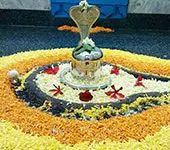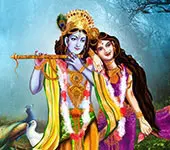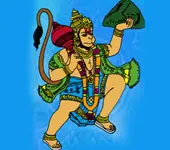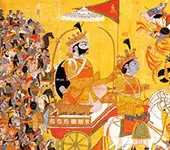Main Characters Of Mahabharata
Comments
Transcript
(Click here to read more)
Who are the main characters in Mahabharata? This is what we have been seeing in the earlier two episodes. We have seen about Satyavati and Vyasa. Bhishma was the incarnation of one of the eight Vasus. Vasus are a group of eight Devatas, the Ashta Vasus. Just like Adityas and sons of Aditi, Vasus are also sons of one of the daughters of Daksha. Her name was also Vasu. Their father was Dharma. They were cursed by Sage Vasishta to take birth on earth. They all took birth as Ganga's son. Ganga her....
Transcript
(Click here)
Who are the main characters in Mahabharata?
This is what we have been seeing in the earlier two episodes.
We have seen about Satyavati and Vyasa.
Bhishma was the incarnation of one of the eight Vasus.
Vasus are a group of eight Devatas, the Ashta Vasus.
Just like Adityas and sons of Aditi, Vasus are also sons of one of the daughters of Daksha.
Her name was also Vasu.
Their father was Dharma.
They were cursed by Sage Vasishta to take birth on earth.
They all took birth as Ganga's son.
Ganga herself gave them relief from their curse by taking away their life as soon as they were born.
They were to only take birth, not live on earth.
But, only seven of them.
The eigth one had to live also.
That was Bhishma.
Bhishma is an incarnation of one of the Vasus.
Now, two more of the same generation, Vidura and Sanjaya.
There was a Rishi called Animandavya (अणिमाण्डव्यः).
He was once falsely accused of stealing and mounted on top of a spear to die.
When he went to Yamaloka, he asked Dharmaraja.
Why did this happen to me?
I have done so much tapas.
As far as I remember, the only sin I have ever done is when I was a child I pierced a birdling with a straw.
But, such a big punishment for that?
And benefit from my tapas?
Your system is faulty.
There is no proportional justice in your system.
Animandavya cursed Dharmaraja, you take birth on earth as the son of a maid.
That is Vidura.
Just like Dharmaraja, virtues embodied.
That means at the time Yamaraja took two incarnations; as Yudhishtira and as Vidura, but two different generations.
Sanjaya was a Suta, a charioteer.
Dhritarashtra's charioteer, very noble, very intelligent and very intuitive. Sanjaya was equal to Munis.
Suryadeva incarnated as Karna, an amsha of Surya, a small part of Surya.
When he was born itself, he had an armour and brillinat ear ornaments on his body.
Bhagavan Vishnu took avatara as Shri Krishna.
Bhagavan only took avatara as both Krishna and Balarama.
Both were well versed in shastras and warfare.
Krishna had two companions, Satyaki and Kritavarma.
Drona, the guru of the Pandavas and Kauravas did not have a mother.
The seed of Sage Bharadwaja developed into Drona in a cave in a mountain.
Dronee means cave.
That's how he got the name Drona.
Who was Drona's wife?
Kripi. Mother of Ashwathama.
Her brother was Kripacharya.
Sage by name Sharadwan, they both were born from his seed without a mother. He belonged to the Gautama gotra.
See procreation involving male and female is just one of the modes of reproduction.
Initially Brahma used to just manifest, just by thinking about something.
Then this kind asexual reproduction started happening.
Then procreation, sexual reproduction.
They used to run parallely as well.
Dhrishtadyumna was born from yagagni, no father, no mother.
Dhrishtadyumna had a bow in his hand which was meant to kill Drona.
Draupadi also was born from the same yaga vedi of King Drupada.
Shikhandi was Drupada's daughter.
A yaksha called Sthoonakarna turned her into a man.
Shakuni was the son of the king of Gandhara, Subala.
Subala was incarnation of Prahlada's disciple, Nagnajit.
Gandhari was Shakuni's sister.
Vyasa was the biological father of Dhritarashtra, Pandu and Vidura.
Dhritarashtra's mother was Ambika, Pandu's mother was Ambalika and Vidura's mother was a maid.
Pandu had two wives, Kunti and Madri.
Through Kunti Dharmarja incarnated as Yudhishtira, Vayudeva incarnated as Bhima and Indradeva incarnated as Arjuna.
Suryadeva's incarnation as Karna, we have already seen.
Nakula and Sahadeva were incrnations of Ashwini Kumaras through Madri as twins just like how the Aswini Kumaras are.
Remeber that Aswini Kumaras are sons of Surya.
One hundred sons were born to Dhritarashtra and Gandhari which are the Kauravas.
Dhritarashtra had another son by Yuyutsu in a Vaishya woman.
Just like how the son of Kshatriya father and Brahmana mother is called Suta, the son of a Kshatriya father and a Vaishya woman is called Karana.
Yuyutsu was a Karana.
There were eleven Maharathis among Dhritrarashtra' sons.
Duryodhana, Dusshasana, Dussaha, Durmarshana, Vikarna, Chitrasena, Vivimshati, Jaya, Satyavrata, Purumitra and Yuyutsu.
Arjuna married Krishna' sister Subhdra and Abhimanyu was their son.
Five sons were born to Draupadi from the Pandavas:
Prativindhya from Yudhishtira, Sutasoma from Bhima, Shutakeerthi from Arjuna, Shataneeka from Nakula and Shrutasena from Sahadeva.
Ghatotacha was the son of Bhima and his Rakshasi wife Hidimba.
Hundreds of thousands of brave warriors participated in the battle of Kurukshetra, many kings with their own legends and history.
But these are the main characters around whom the storyline of Mahabharata expands.
Recommended for you
How to install Shiva Linga in a temple
 Click here to know more..
Click here to know more..
How, What, Which, And Why Of His Avataras

How did a particular avatara occur? What was the form of the avatara? Which is the place where the avatara took place? Why did Bhagawan take that avat....
Click here to know more..Hanuman Stuti

arunaaruna- lochanamagrabhavam varadam janavallabha- madrisamam. haribhaktamapaara- samudrataram hanumantamajasramajam bhaja re. vanavaasinamavyaya- r....
Click here to know more..
English Topics
Mahabharatam
Click on any topic to open
- 96 Two Curses That Worked against Karna
- 95 What is behind Calling the Five Brothers the Pandavas
- 94 Give up an Individual IF....
- 93 Fascinating Birth Story of the Kauravas
- 92 Overcoming Grief - Lessons from King Senajit's story
- 91 Yayati's Wisdom
- 90 Yayati's Story
- 89 Brahmacharis Can Bless And Curse
- 88 Human Nature - Comples Mix Of Good And Bad
- 87 Results Of Good Karma
Please wait while the audio list loads..
30
Ganapathy
Shiva
Hanuman
Devi
Vishnu Sahasranama
Mahabharatam
Practical Wisdom
Yoga Vasishta
Vedas
Rituals
Rare Topics
Devi Mahatmyam
Glory of Venkatesha
Shani Mahatmya
Story of Sri Yantra
Rudram Explained
Atharva Sheersha
Sri Suktam
Kathopanishad
Ramayana
Mystique
Mantra Shastra
Bharat Matha
Bhagavatam
Astrology
Temples
Spiritual books
Purana Stories
Festivals
Sages and Saints
